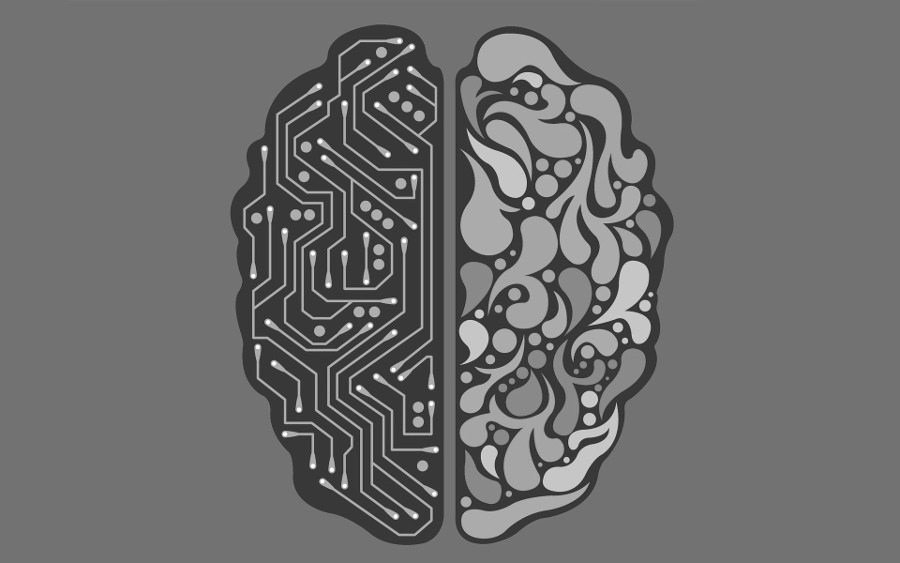
Artificial intelligence is unlikely to produce a robo-eye-doc who will replace you, but it is likely to add a new dimension to the service we can provide to our patients.
AI-Powered Patient History Interview
I can foresee a future in which AI will be able to talk with patients about their reason for their visit when they book their appointment online. Advanced AI systems, with voice activation, would be able to talk to patients to take a case history, gathering the important information, analyzing it and then providing the doctor with a preliminary finding, which the doctor can explore in greater detail when the patient comes in for an in-person appointment.
Before the Patient Ever Gets to Office
When the patient makes an appointment, AI technology could take information-finding to the next level. The patient would not just fill out a form online prior to their visit detailing their health history and eyecare needs. It would provide an interactive interview.
The system would have a “voice” that would ask the patient questions, such as family history of eye diseases like macular degeneration and glaucoma, and then would ask the next question based on the response it received. For instance, if the patient said “yes” to having a family history of a particular eye disease, the system would then ask which relative(s) in their family had the disease.
Or the system might ask the patient if they participate in sports, and then if the patient said “yes,” the system might ask the patient to say which sport. Then, the system might ask the patient if they were interested in learning more about the sports sunwear the practice sells specifically for that sport.
The key to effectiveness will be the ability of the doctor and optical staff to sit down together and come up with the most helpful questions to input into the system to ask. It’s like the old saying, “garbage in, garbage out.” AI systems are, by definition, “intelligent,” but not so intelligent that they don’t require the inputting of the right information to use as foundation for its interaction with patients.
Lay the Groundwork for a More Productive Visit
Before the patient gets to the office, the transcript, in both written and recorded form, would be sent to the patient’s EHR file, with the eyewear-related information sent to opticians.
In addition to giving the doctor detailed information about family history that they could use to ask more informed questions of the patient, opticians would get a jump start on the sales process. They would know ahead of time to have a tray of sunwear specific to that patient’s favored sport ready to show them during their visit.
Interactive Displays in the Optical
The opticians will be better armed with information about each patient’s needs, and the displays themselves could “talk” to patients.
A patient could pick up a frame to try on, and when they pick it up, and when they put it back on the board, an AI system could say: “We have that frame in other colors” or “If you liked that frame, you may also be interested in X frame.”
The system could have an “Ask me a Question” button for every section of the frame board in which the patient can ask questions about the merchandise like they would type a question into Google, and then the system would either give a response or summon an optician to answer the question.
Data Interpretation Help
Diagnostic equipment produces data that historically the doctor reviewed and interpreted. AI would be able to analyze the data and would provide the doctor with a working diagnosis and treatment plan.
AI might be able to run more in-depth analysis on the data than a human doctor could. AI may be better at looking at images than a human doctor both in terms of speed and precision. This would lead to better patient outcomes and the ability to process patients more efficiently.
For example, fundus imaging. AI would be able to track subtle changes to blood vessels, optic nerves and retinal lesions over time. AI would be able to alert the doctor to these changes earlier. This is essential as early intervention often leads to better patient outcomes.
Boost Marketing Efforts
AI would be able to tap into your EHR data and look for marketing opportunities. It would then be able to generate marketing content to take advantage of that information, and would be able to tell you the ideal channels to broadcast those marketing messages based on information stored in the system on what’s worked best in promotion efforts for your practice and other practices.
You and your staff can already use your EHR to mine data to use for marketing your products and services. What AI offers is a helping hand doing that work. Rather than you having to search for, and then look through the data, yourself, an AI system could do that work for you. It might be able to automatically conduct searches for marketing opportunities, and then analyze the data on its own, to let you know, without searching yourself, of needed products and services that your patients may not be receiving as much of as they should be.
This kind of advanced, data-driven marketing would help build practices. Patients would more easily be given marketing messages that were most relevant to them.
How Expensive Will This Technology Be?
With all the great promise of AI technology, a question still remains of how costly it will be to purchase and implement.
It may be that as the technology emerges, it will be prohibitive for all but the biggest, and most profitable, practices, but that five-to-10 years after its widespread availability, it will become affordable for smaller practices.
The important point is to be aware of the coming opportunities to better serve our patients–and to develop plans to eventually optimize that technology so patients are better served, and our practices get a springboard to growth and profitability.
Have you thought about the role AI could play in our practices? What ideas do you have of how you could use this technology in your own practice?

JUSTIN BAZAN, OD
is the owner of Park Slope Eye in Brooklyn, N.Y. To contact him: dr.bazan@parkslopeeye.com.











